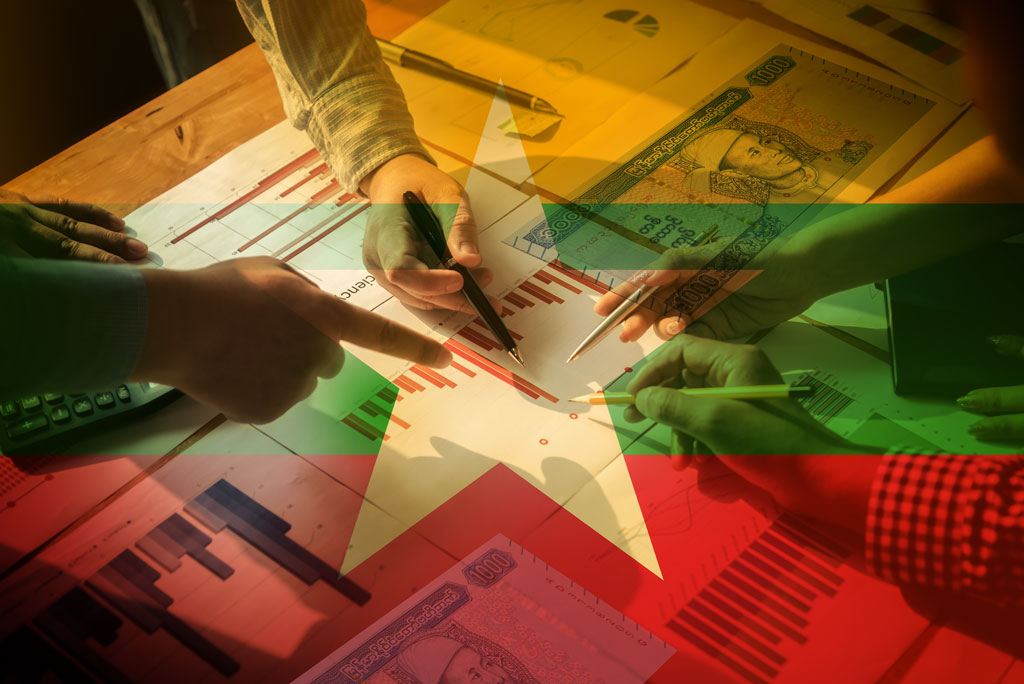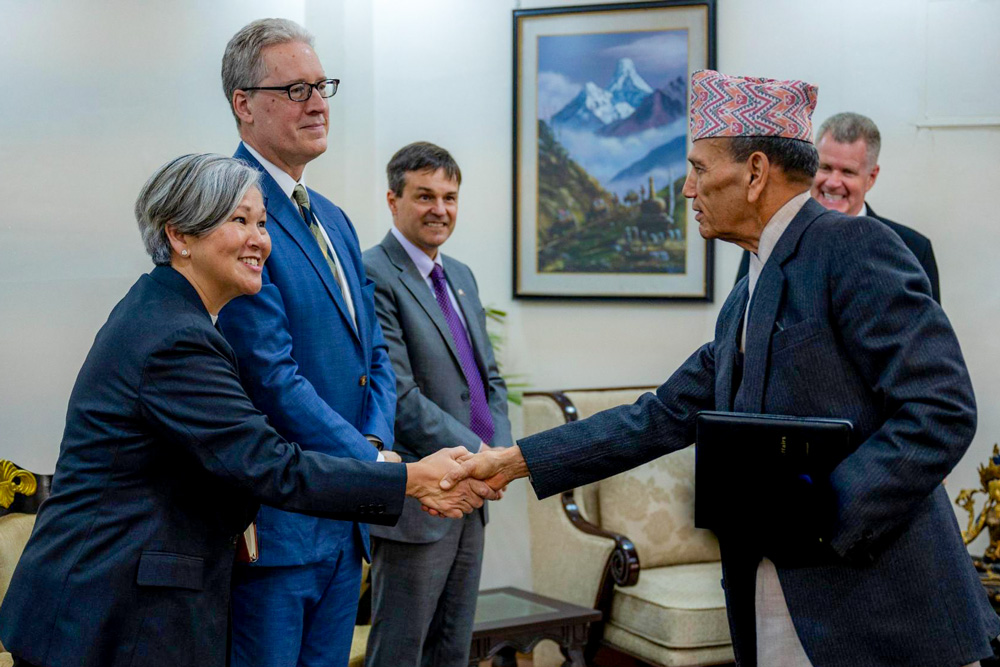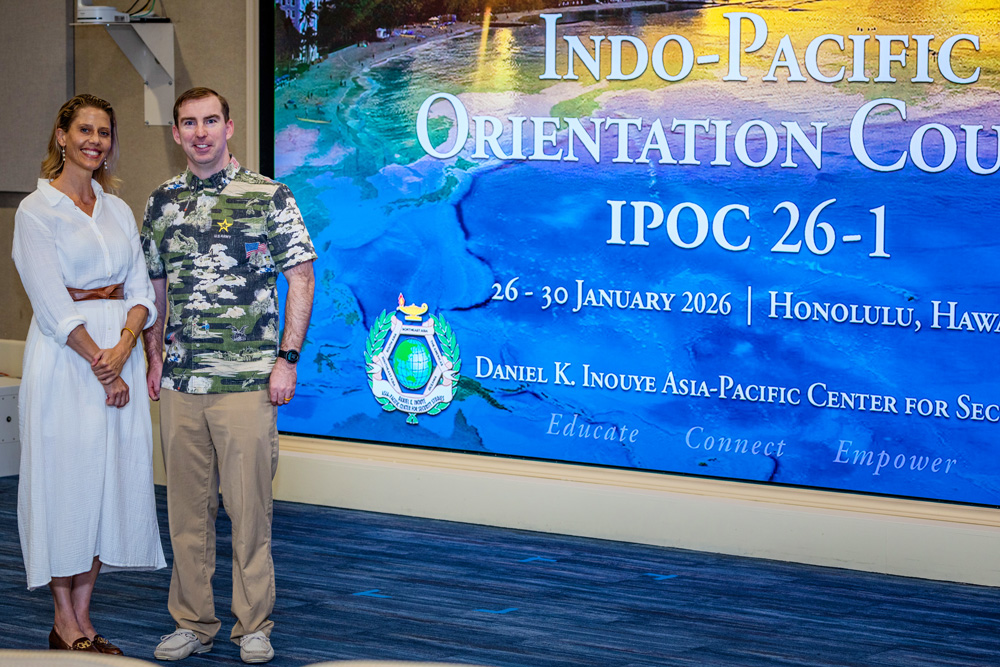Approaching the third anniversary of its internal conflict, Myanmar is currently experiencing a precarious state of disarray within the military junta and its armed forces, teetering on the verge of collapse. Recent setbacks have dealt a severe blow to their morale. Major border trade cities and towns in the north and west have been lost to the anti-junta resistance coalition. The military’s once-unquestioned tactical air superiority is now showing signs of degradation, marked by successive aircraft losses in the skies.
The repercussions of these defeats are evident in the emergence of fissures in the confidence of fervent supporters. These include Buddhist ultranationalist monks whom the military has strategically cultivated for political manipulation. In a noteworthy turn of events, these monks are actively demanding the resignation of Senior General Min Aung Hlaing, the head of the military junta, and endorsing the promotion of his deputy, General Soe Win. This shift not only reflects a loss of faith in the current leadership but also poses a significant threat to exacerbate the existing turmoil within the military organization as loyalty begins to waver among key factions.
As of January 2024, data spanning from April to December 2023 sheds light on the formidable challenges confronting the military junta in Myanmar. A mere 15 percent of the entire country remains under its complete control. This reveals a stark reality where 283 out of 333 (85%) townships are experiencing resistance and armed eruptions. The military junta is grappling with an unparalleled level of opposition and resilience from the population.
This formidable resistance is characterized by unprecedented cooperation among diverse ethnic resistance organizations and Burman resistance forces. Their collaborative efforts signify a monumental triumph for the resistance coalition. This transcends historical distrust that has traditionally existed among disparate groups, creating a formidable front against the military junta.
In stark contrast, the military junta finds itself in a state of degradation, burdened by inept leadership, mismanagement, and endemic corruption. The erosion of their authority is evident in the diminishing territory under their control and the widespread resistance that spans most of the country. The juxtaposition of a resilient and collaborative resistance against a faltering military leadership underscores the evolving dynamics in Myanmar’s internal conflict. It paints a vivid picture of the challenging landscape faced by the military junta.
The junta’s flawed strategy, rooted in a profound failure to grasp the dynamics of Myanmar’s democratic transition, the populace’s fervent desire for freedom, and the significant advancements in information communication technologies, is marked by a reliance on military tactics to address inherently political challenges. Senior General Min Aung Hlaing’s impotence extends well beyond the military sphere, permeating into economic realms. This contributes substantially to the nation’s economic hardship.
The junta’s draconian fiscal policies have served to exacerbate the economic downturn. The World Bank projects a substantial 10% contraction since 2019 and a meager 1% growth forecast for the first quarter of 2024. Under the mismanagement of the junta, consumer prices have skyrocketed by nearly 30%, and the value of Myanmar’s currency has experienced a sharp decline. The persistence of economic deterioration is imminent as long as the inept junta maintains control over crucial economic elements. This introduces uncertainty with hastily implemented policies.
The junta’s incompetence in managing military affairs, as well as the intricate complexities of governing a country with over 50 million people, is increasingly evident. While tax revenue generated from specific export sectors may provide a temporary lifeline, it merely prolongs conflict and the suffering of the populace. Some international businesses, citing employee retention concerns, advocate for maintaining relationships and continuing business with the junta. However, a more humane and sustainable strategy is cutting off all direct and indirect financial support to the military junta.
It is widely recognized that removing the junta is the only viable long-term solution to effectively revive Myanmar’s economy. This sentiment underscores the need for a comprehensive approach to prioritizing people’s aspirations. Myanmar people aspire towards an economic landscape more aligned with the success of South Korea rather than the constraints experienced in North Korea.
The junta’s inept policies are steering the Myanmar economy towards a trajectory reminiscent of North Korea, where there is a struggle to provide basic necessities for the population. This grim prospect starkly contrasts with the vibrant vision held by the people of Myanmar. They firmly believe that a thriving democracy is the key to unlocking prosperity. Therefore, the call for removing the junta is not merely a political demand but a collective expression of the people’s yearning for a democratic framework. This framework not only addresses immediate challenges but also ensures a future where Myanmar thrives as a beacon of democratic success and economic prosperity.
Miemie Winn Byrd is a professor at the Daniel K. Inouye Asia-Pacific Center for Security Studies. The views expressed in this article are her own and do not reflect those of DKI APCSS, the U.S. Department of Defense, or the U.S. Government.










Leave A Comment